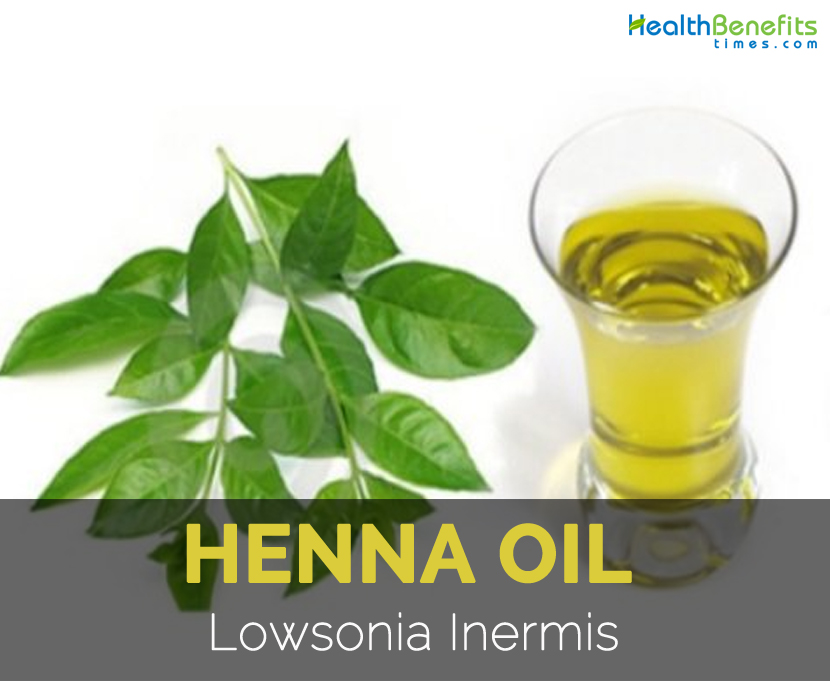History
Henna is a small bush which produces red dye from the leaves which are grounded into powder after dried and mixed into paste. It is applied to the skin. Henna was used during Bronze and Neolithic Ages over 9000 years before. It is an oldest cosmetic which has been mentioned in Bible. It is used to treat lice, heat exhaustion and fungal infections. It was used by Egyptian civilization of queens, Pharaohs and pyramids. It is used over 60 countries including Morocco, India, Mediterranean, Middle East, South China, Africa and Southeast Asia. This plant is native to South Asia and India.
Benefits of Henna oil
- It is used in aromatherapy.
- It is used to soothe soul, mind and body.
- It detoxifies and cools the body.
- It prevents dandruff, premature greying, hair loss and nourishes the hair.
- It lowers confusion and mental fatigue.
- It enhances blood circulation of scalp.
- It is used in aromatherapy for providing relief from stress and depress.
- The addition of mehndi oil to the bath water provides relaxation and soothing effect.
- The use of mehndi oil to the scalp alleviates dryness and itchiness of scalp.
- It promotes sleep, cure bruises and headaches.
- It helps to treat eczema, fungal infections, scabies and burns.
How to Use
- In 10 g of mehndi powder, add 1-3 ml of mehndi oil.
- During pregnancy, the use of mehndi oil should be avoided as it could be harmful for the baby.
- It is better to consult the expert before using this oil.
- Do a patch test before using henna oil to know the allergic reactions.
Precautions
- Allergic people should avoid its use.
- Use it in moderate amounts.
How to make
- Firstly grind the leaves of henna making it a paste.
- Avoid using too much water to grind the leaves. Add only few drops to make it easy for grinding.
- Then make balls of Amla sized from the grinded leaves.
- Heat coconut oil about 500 ml in a pan.
- Then put that henna paste balls into coconut oil.
- Boil the oil.
- When the color of the oil changes remove the pan.
- Let it cool and strain the oil. Then store it to an air tight container.
Henna oil facts
It is an essential oil which is derived from Henna. The mixture of dye and oil helps to prevent skin infections. It is blended with Tonka Bean Absolute, Neroli, Blue Chamomile, Lavender, Ylang Ylang, Rose absolute and other spice oils.
| Henna oil facts and uses Quick Facts | |
|---|---|
| Name: | Henna oil facts and uses |
| Scientific Name: | Lowsonia Inermis |
| Origin | This plant is native to South Asia and India. |
| Colors | Rich orange |
| Health benefits | Soothe body, Detoxification, Prevent dandruff, Promote blood circulation, Relief from stress |
| Name | Henna oil facts and uses |
|---|---|
| Scientific Name of Henna Plant | Lowsonia Inermis |
| Native | This plant is native to South Asia and India. It is used over 60 countries including Morocco, India, Mediterranean, Middle East, South China, Africa and Southeast Asia. |
| Common/English Name | Tattoo oil, Mehandi oil |
| Name in Other Languages of Henna Plant | Punjab: Hinna, Nakrize, Mehndi, Panwar; Sind: Mendi; Bombay: Mendie, Henne; Gujarat: Mendi, Medi; Bengal: Mehedi, Shudi, Mehndi; English: Camphire, Egyptian Privet, Cypress Shrub, Henna Plant, Mindie, Jamaica Mignonette, Tree Mignonette Hindi: Hena, Mhindi, Mehndi; Sanskrit: Dvivranta, Medika, Kokadanta, Nakharanjaka, Mendhika, Ragagarbha, Nakaranjani; Persian: Panna, Hina, Arabic: Alhenna, Henneh, Henna, Yoranna, Hinna; Hebrew: Bapar; Chinese: Tche Kia Hoa; French: Alcana D’orient, Alkanna d’Orient, Alkanna d’Avicenne, Thomarhendi d’Avicenne; Spanish: Henne; Marathi: Mendi, Mendhi; Urdu: Mehendi; Bhote: Simru; Tamil: Aivanam, Korandam, Aivana, Kurandagam, Pidai, Kurinji, Ponninpuvalamarudondri, Mayilainandi, Marudondri; Malayalam: Pontalasi, Mayilanji; Burma: Danbin, Dan; Cambodia: Krapeu; Swahili: Muheni, Muhanoni; Teluga: Goranta, Gorinta, Gorata, Krommi, Maida, Kuravakamu, Pschapeddagoranta; Canarese: Goranta, Goranthu, Gorante, Madaranga Central, Korate; Provinces: Mhendi, Mehndi; Greek: Kypros; Belgaum: Iswan; Hausa: Lalle; Sinhalese: Maritondo; Las Bela: Mehndi; Konkani: Meti; Woloff: Foundenn; Malay: Inai; Mundari: Bind, Mindi, Bindi; Indo Chana: Chi Gaip Hoa, Kao Youak, Khao Thien, Kok Khao, Mong Tay, Krapin Kupin Tue, Mong Tay Nhuom; Santal: Mihndi; Phillipines: Cinamomo Del Pais, Cinamomo; Lambadi: Bhurara; Rajpunta: Mehendi; Uriya: Mehendi, Monjuati, Mendi, Rongota, Olota; Tulu: Madirengi; Kannada: Manjha; |
| Appearance | Thick liquid |
| Color | Rich orange |
| Flavor/aroma | Luscious floral |
| Traditional uses |
|
| Precautions |
|
| How to Use |
|
| How to make |
|
References:
http://www.naturalcosmeticsupplies.com/henna-oil.html
http://www.beautyglimpse.com/diy-how-to-make-henna-hair-oil-for-hair-growth/
http://www.stylecraze.com/articles/mehandi-oil-how-to-use-and-what-are-its-benefits/#gref
Comments
comments
